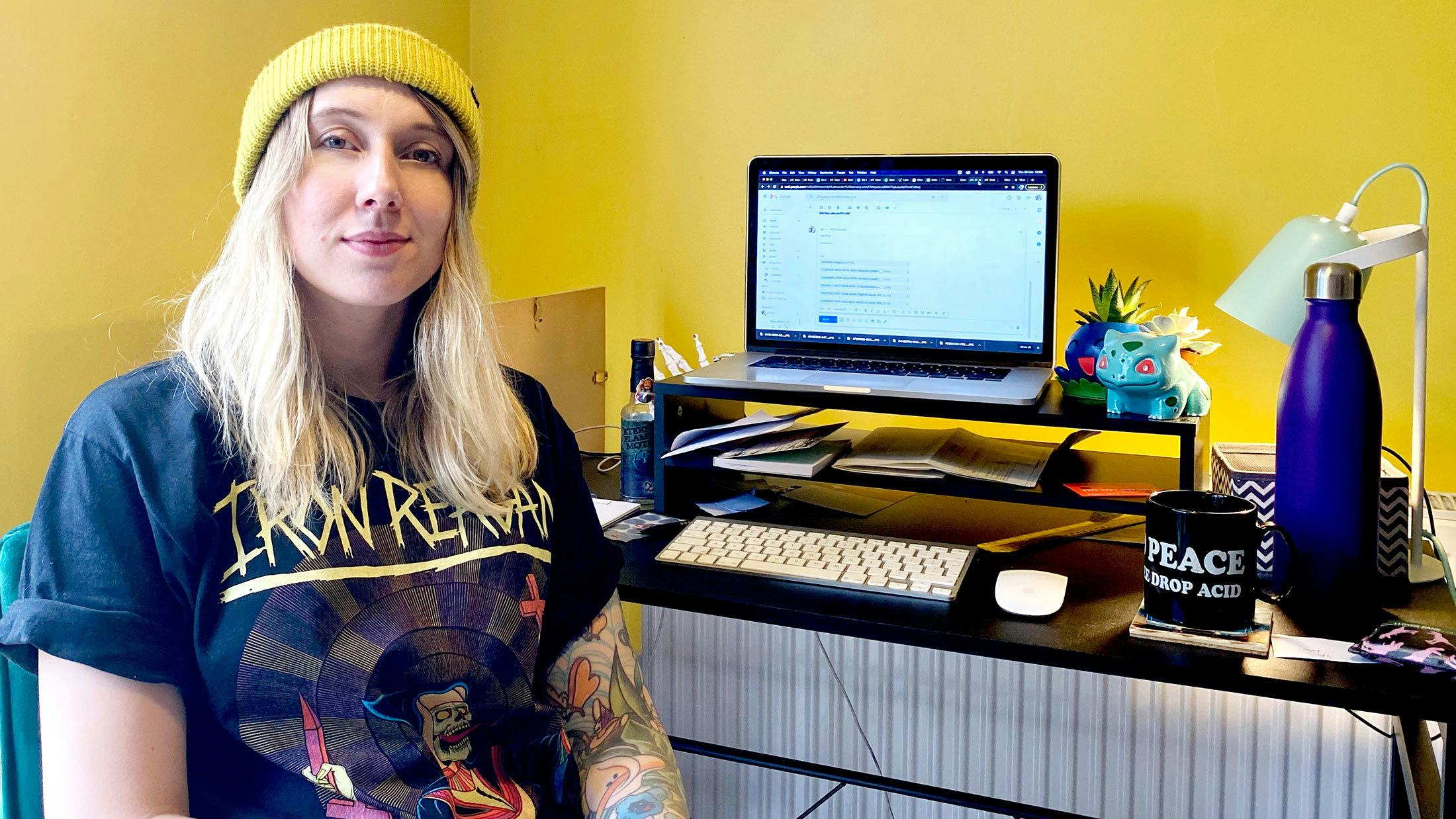On the subject of women in the industry that people can look up to, when you were young, who were your role models and what did they represent to you?
"This sounds really, really cheesy but one of my role models was Sigourney Weaver! She was one of the first female superheroes. I wasn’t born at the time the movie came out, but by the time I was 18 I would watch Aliens – which I’d been too scared to watch before then – and I just thought it was so cool seeing a woman blow up aliens and stuff. I just think she’s really awesome. I was also into Sarah Connor from Terminator, all these really strong women. I didn’t really know of any women in the industry until I got more involved, so I guess that circles back to having a spotlight on people working in the industry to make them more visible."
Who do you find inspiring in the industry?
"I think Cathy [Pellow, owner of] Sargent House is really cool. I love what she’s done to the label’s roster and she’s involved in every way, and she manages a lot of the artists too. I also love a lot of the artists on the label. She’s awesome.
"There’s also Goc [O’Callahan] who works with James [Scarlett, festival founder] on Arctangent and 2000trees. She’s heavily involved in the organisation of that, and that’s really good to see.
"There’s also Carly Maile who produces Daniel P. Carter’s Radio Rock Show, and I’ve worked with her for a number of years. Serena Cherry from Svalbard – and now [her solo project] Noctule – is inspiring, too. She’s very vocal and knowledgeable about everything she talks about."
In your opinion, what needs to change for there to be a greater sense of equality in the music industry?
"To be honest, I think the thing that needs to change… it needs to happen a lot earlier in women’s lives. At secondary school, that time is such a stifling time for non-white males, basically. I feel like I can’t even describe it. It’s almost as if people assume that you’re going to go into childcare or something like that. There’s no question if a woman wants to go into mechanics or music or filming, which are traditionally masculine jobs.
"Getting to kids at school age and saying that there are lots of options for you, and you can get funding from here, [is important] because I think a lot of it is [down to] financial inequality, and after the pandemic I think that’s going to be more of a thing. There are lots of ways for people to get funding to set up cool new ventures like record labels or studios.
"It is literally about education, and calling people out when they’re being inappropriate. Some people know they’re being inappropriate and they do it on purpose to get a rise out of you and unfortunately it’s so systemic that I don’t think they realise they’re doing it, so I think gently being pointed in the correct way of thinking will help a lot.
"It’s such a gradual thing that has to happen. I feel that even in the just under 10 years that I’ve been in a band, it’s improved. I feel that there are more females in bands now, so hopefully it’s only a matter of time before the industry sees that as well."
Read this next:
